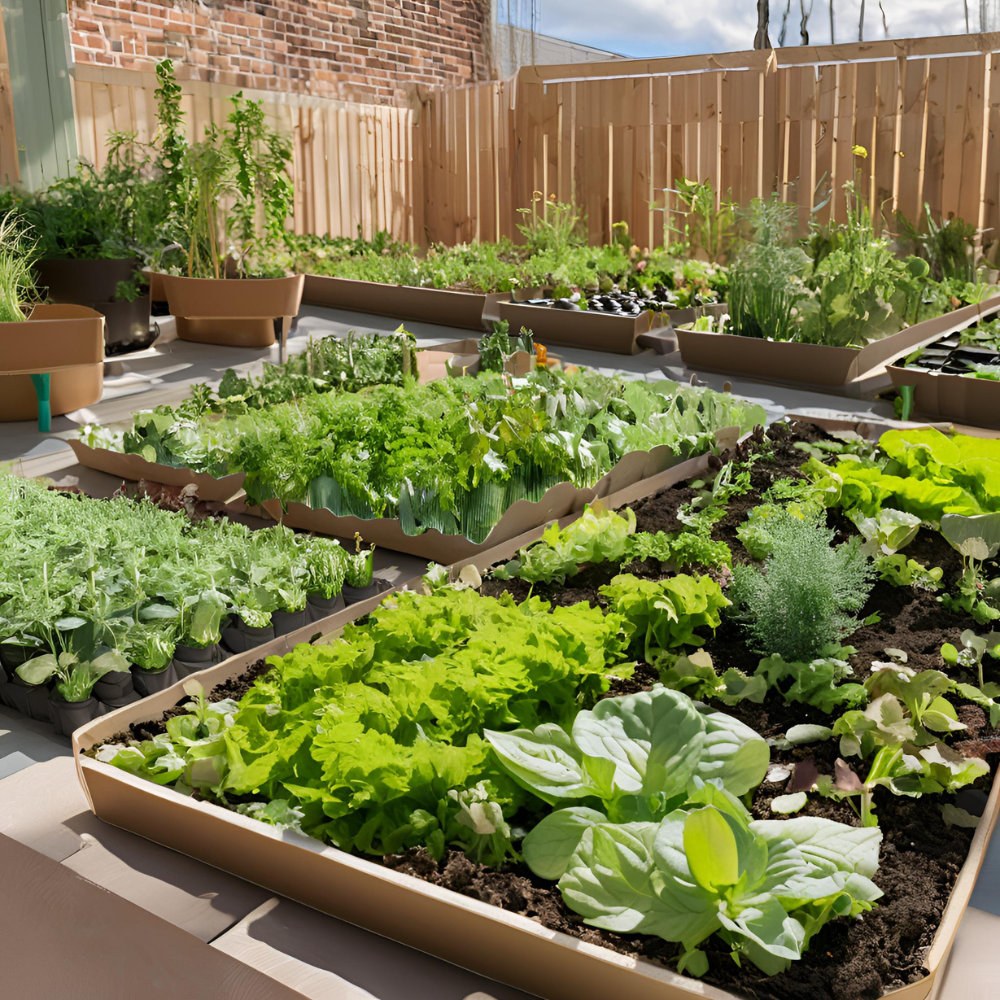Garden Hacks
Eco-friendly gardening is more than a trend; it’s a movement towards sustainability and environmental stewardship. Embracing eco garden hacks not only helps the planet but also enhances your garden’s health and productivity. Let’s explore 10 essential eco garden hacks that will transform your gardening practices and make your green space thrive.

Compost Everything
Composting is the cornerstone of eco-friendly gardening. By turning kitchen scraps and garden waste into compost, you enrich your soil and reduce landfill waste. Starting a compost pile is simple: choose a spot in your garden, layer organic materials like vegetable peels, coffee grounds, and yard clippings, and let nature do the rest. Over time, these materials break down into nutrient-rich humus, perfect for nourishing your plants.
Rainwater Harvesting
Why let precious rainwater go to waste? Harvesting rainwater is an excellent way to conserve water and reduce your utility bills. Install a rain barrel under your downspout to collect runoff from your roof. This water can be used for watering your garden, washing tools, and even indoor plants. Setting up a rain barrel is straightforward and can make a significant difference in your water usage.

Mulch Your Garden
Mulching offers myriad benefits for your garden. By covering the soil with organic materials like straw, leaves, or grass clippings, you retain moisture, suppress weeds, and improve soil health. Organic mulch breaks down over time, adding valuable nutrients to the soil. Apply mulch generously around your plants, making sure to keep it a few inches away from the stems to prevent rot.
Grow Native Plants
Native plants are adapted to your local climate and soil conditions, making them easier to grow and maintain. They require less water, are more resistant to pests, and provide habitat for local wildlife. To start, research plants native to your area and incorporate them into your garden. This not only enhances biodiversity but also reduces the need for chemical fertilizers and pesticides.
DIY Fertilizers
Homemade fertilizers are a fantastic way to nourish your garden without harmful chemicals. Common kitchen waste like banana peels and coffee grounds can be turned into potent plant food. For example, banana peels are rich in potassium, which is essential for flowering plants. Simply chop up the peels and bury them in the soil around your plants. Coffee grounds are perfect for acid-loving plants like roses and azaleas; sprinkle them on the soil surface or mix them into your compost.

Companion Planting
Companion planting is an age-old gardening technique that involves planting certain species together to enhance growth, deter pests, and improve flavor. For instance, planting basil alongside tomatoes can repel pests and improve the flavor of your tomatoes. Similarly, marigolds can be planted with almost anything to deter nematodes and other pests. Create plant pairings that support each other for a healthier, more productive garden.
Use Recycled Containers
Upcycling old containers into planters is not only eco-friendly but also adds unique charm to your garden. Think beyond traditional pots: use old boots, tin cans, wooden crates, or even broken kitchenware as plant containers. Drill drainage holes if needed, fill them with soil, and plant your seeds or seedlings. This approach reduces waste and gives new life to discarded items.
Install a Drip Irrigation System
Drip irrigation systems deliver water directly to the roots of your plants, minimizing evaporation and runoff. This method conserves water and ensures your plants get the moisture they need. Installing a drip irrigation system involves laying tubing around your garden beds and connecting it to a water source. Timers can automate watering schedules, making this an efficient and eco-friendly solution.

Encourage Pollinators
Pollinators like bees, butterflies, and hummingbirds are crucial for a thriving garden. Attract these beneficial insects by planting flowers rich in nectar and pollen. Plants like lavender, sunflowers, and coneflowers are excellent choices. Additionally, avoid using pesticides, which can harm pollinators. Creating a diverse, pesticide-free garden will encourage these vital creatures to visit and help your plants flourish.
Create a Worm Farm
Vermicomposting, or worm farming, is an efficient way to recycle food scraps into rich fertilizer. Worms break down organic matter into nutrient-dense castings, which are fantastic for your plants. To start a worm farm, set up a bin with bedding material like shredded newspaper, add red wiggler worms, and feed them kitchen scraps. Harvest the worm castings periodically and use them to enrich your garden soil.
Use Greywater
Greywater is wastewater from sinks, showers, and washing machines that can be reused in your garden. This practice conserves water and reduces your environmental footprint. To use greywater safely, avoid using water with harsh chemicals or detergents. Direct greywater to your garden using a simple system of pipes and filters. This method works well for ornamental plants and trees, but be cautious when using it on edible plants.

Plant a Cover Crop
Cover crops are plants grown primarily to benefit the soil rather than for harvest. They prevent erosion, suppress weeds, and improve soil fertility. Common cover crops include clover, rye, and vetch. Sow cover crops in your garden during the off-season, and when they mature, till them into the soil to add organic matter and nutrients.
Install Solar Garden Lights
Solar garden lights are an eco-friendly way to illuminate your outdoor space. They use renewable energy from the sun, reducing your electricity consumption. Choose solar lights with efficient LED bulbs and place them in sunny spots to ensure they charge fully during the day. They’re perfect for highlighting garden paths, accenting plantings, and enhancing evening ambiance.
Create a Wildlife Habitat
A garden that welcomes wildlife is vibrant and dynamic. Incorporate elements like bird feeders, birdbaths, and insect hotels to attract beneficial creatures. Plant a variety of native species to provide food and shelter. Avoid using chemicals that can harm wildlife. A thriving habitat supports biodiversity and helps control pests naturally.

Practice No-Dig Gardening
No-dig gardening is a method that promotes soil health and reduces labor. By avoiding tilling, you preserve soil structure and microbial life. Start by layering organic materials like compost, straw, and manure on top of the soil. Plant directly into this layer. Over time, the materials break down and enrich the soil beneath. This method reduces weeds, retains moisture, and fosters a healthy ecosystem.
Embrace these eco garden hacks to create a sustainable, thriving garden that benefits both you and the environment. Happy gardening!
